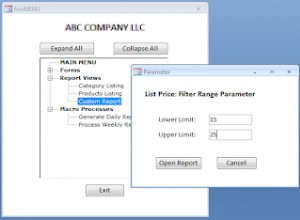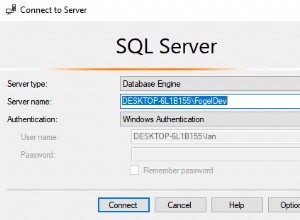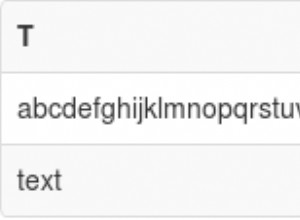Hàm dưới đây thay thế các biến liên kết bằng các ký tự gần đây, sử dụng dữ liệu từ GV $ SQL_BIND_CAPTURE. Siêu dữ liệu liên kết Oracle không phải lúc nào cũng có sẵn, vì vậy hàm dưới đây có thể không hoạt động với tất cả các truy vấn.
Tạo hàm:
create or replace function get_sql_with_literals(p_sql_id varchar2) return clob authid current_user is
/*
Purpose: Generate a SQL statement with literals, based on values in GV$SQL_BIND_CAPTURE.
This can be helpful for queries with hundreds of bind variables (or cursor sharing),
and you don't want to spend minutes manually typing each variable.
*/
v_sql_text clob;
v_names sys.odcivarchar2list;
v_values sys.odcivarchar2list;
begin
--Get the SQL_ID and text.
--(Use dynamic SQL to simplify privileges. Your user must have access to GV$ views,
-- but you don't need to have them directly granted to your user, role access is fine.)
execute immediate
q'[
select sql_fulltext
from gv$sql
--There may be multiple rows, for clusters or child cursors.
--Can't use distinct with CLOB SQL_FULLTEXT, but since the values will be the same
--we can pick any one of the rows.
where sql_id = :p_sql_id
and rownum = 1
]'
into v_sql_text
using p_sql_id;
--Try to find the binds from GV$SQL_MONITOR. If the values exist, this is the most accurate source.
execute immediate
q'[
--Get the binds for the latest run.
select
case
when name like ':SYS_%' then ':"' || substr(name, 2) || '"'
else name
end name,
case
when dtystr like 'NUMBER%' then nvl(the_value, 'NULL')
when dtystr like 'VARCHAR2%' then '''' || the_value || ''''
when dtystr like 'DATE%' then 'to_date('''||the_value||''', ''MM/DD/YYYY HH24:MI:SS'')'
--From: https://ardentperf.com/2013/11/19/convert-rawhex-to-timestamp/
when dtystr like 'TIMESTAMP%' then
'to_timestamp('''||
to_char( to_number( substr( the_value, 1, 2 ), 'xx' ) - 100, 'fm00' ) ||
to_char( to_number( substr( the_value, 3, 2 ), 'xx' ) - 100, 'fm00' ) ||
to_char( to_number( substr( the_value, 5, 2 ), 'xx' ), 'fm00' ) ||
to_char( to_number( substr( the_value, 7, 2 ), 'xx' ), 'fm00' ) ||
to_char( to_number( substr( the_value, 9, 2 ), 'xx' )-1, 'fm00' ) ||
to_char( to_number( substr( the_value,11, 2 ), 'xx' )-1, 'fm00' ) ||
to_char( to_number( substr( the_value,13, 2 ), 'xx' )-1, 'fm00' ) ||
''', ''yyyymmddhh24miss'')'
else 'Unknown type: '||dtystr
end the_value
from
(
select xmltype.createXML(binds_xml) binds_xml
from
(
select binds_xml, last_refresh_time, max(last_refresh_time) over () max_last_refresh_time
from gv$sql_monitor
where sql_id = :p_sql_id
and binds_xml is not null
)
where last_refresh_time = max_last_refresh_time
and rownum = 1
) binds
cross join
xmltable('/binds/bind' passing binds.binds_xml
columns
name varchar2(128) path '@name',
dtystr varchar2(128) path '@dtystr',
the_value varchar2(4000) path '/'
)
--Match longest names first to avoid matching substrings.
--For example, we don't want ":b1" to be matched to ":b10".
order by length(name) desc, the_value
]'
bulk collect into v_names, v_values
using p_sql_id;
--Use gv$sql_bind_capture if there was nothing from SQL Monitor.
if v_names is null or v_names.count = 0 then
--Get bind data.
execute immediate
q'[
select
name,
--Convert to literals that can be plugged in.
case
when datatype_string like 'NUMBER%' then nvl(value_string, 'NULL')
when datatype_string like 'VARCHAR%' then '''' || value_string || ''''
when datatype_string like 'DATE%' then 'to_date('''||value_string||''', ''MM/DD/YYYY HH24:MI:SS'')'
--TODO: Add more types here
end value
from
(
select
datatype_string,
--If CURSOR_SHARING=FORCE, literals are replaced with bind variables and use a different format.
--The name is stored as :SYS_B_01, but the actual string will be :"SYS_B_01".
case
when name like ':SYS_%' then ':"' || substr(name, 2) || '"'
else name
end name,
position,
value_string,
--If there are multiple bind values captured, only get the latest set.
row_number() over (partition by name order by last_captured desc nulls last, address) last_when_1
from gv$sql_bind_capture
where sql_id = :p_sql_id
)
where last_when_1 = 1
--Match longest names first to avoid matching substrings.
--For example, we don't want ":b1" to be matched to ":b10".
order by length(name) desc, position
]'
bulk collect into v_names, v_values
using p_sql_id;
end if;
--Loop through the binds and replace them.
for i in 1 .. v_names.count loop
v_sql_text := replace(v_sql_text, v_names(i), v_values(i));
end loop;
--Return the SQL.
return v_sql_text;
end;
/
Chạy chức năng:
Oracle chỉ nắm bắt phiên bản đầu tiên của các biến liên kết. Chạy câu lệnh này trước khi chạy thủ tục để xóa dữ liệu ràng buộc hiện có. Hãy cẩn thận khi chạy câu lệnh này trong quá trình sản xuất, nó có thể tạm thời làm chậm hệ thống vì mất các kế hoạch đã lưu trong bộ nhớ cache.
alter system flush shared_pool;
Bây giờ hãy tìm SQL_ID. Điều này có thể phức tạp, tùy thuộc vào mức độ chung hay duy nhất của SQL.
select *
from gv$sql
where lower(sql_fulltext) like lower('%unique_string%')
and sql_fulltext not like '%quine%';
Cuối cùng, cắm SQL vào thủ tục và nó sẽ trả về mã với các ký tự. Thật không may, SQL bị mất tất cả các định dạng. Không có cách nào dễ dàng để giải quyết vấn đề này. Nếu đó là một vấn đề lớn, bạn có thể xây dựng một cái gì đó bằng cách sử dụng PL / Scope để thay thế các biến trong quy trình nhưng tôi có cảm giác nó sẽ phức tạp một cách lố bịch. Hy vọng rằng IDE của bạn có một trình làm đẹp mã.
select get_sql_with_literals(p_sql_id => '65xzbdjubzdqz') sql
from dual;
Ví dụ đầy đủ với thủ tục:
Tôi đã sửa đổi mã nguồn của bạn và thêm số nhận dạng duy nhất để có thể dễ dàng tìm thấy các truy vấn. Tôi đã sử dụng một gợi ý vì các truy vấn được phân tích cú pháp không bao gồm các nhận xét thông thường. Tôi cũng đã thay đổi kiểu dữ liệu để bao gồm chuỗi và ngày tháng để làm cho ví dụ thực tế hơn.
drop table test1 purge;
create table test1(col1 number, col2 varchar2(100), col3 date);
create or replace procedure test_procedure is
C_Constant constant date := date '2000-01-01';
v_output1 number;
v_output2 varchar2(100);
v_output3 date;
CURSOR cFunnyCursor (
v1 NUMBER,
v2 VARCHAR2
) IS
SELECT /*+ unique_string_1 */ * FROM TEST1
WHERE col1 = v1
AND col2 != v2
AND col3 = C_CONSTANT;
begin
open cFunnyCursor(3, 'asdf');
fetch cFunnyCursor into v_output1, v_output2, v_output3;
close cFunnyCursor;
end;
/
begin
test_procedure;
end;
/
select *
from gv$sql
where lower(sql_fulltext) like lower('%unique_string%')
and sql_fulltext not like '%quine%';
Kết quả:
select get_sql_with_literals(p_sql_id => '65xzbdjubzdqz') sql
from dual;
SQL
---
SELECT /*+ unique_string_1 */ * FROM TEST1 WHERE COL1 = 3 AND COL2 != 'asdf' AND COL3 = to_date('01/01/2000 00:00:00', 'MM/DD/YYYY HH24:MI:SS')




